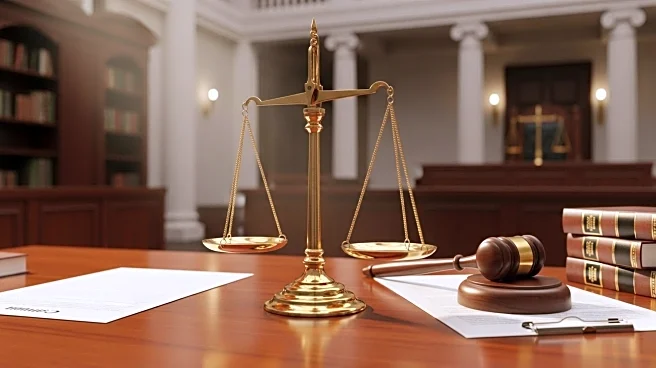What's Happening?
The Supreme Court is convening to discuss numerous appeals accumulated over the summer, including Ghislaine Maxwell's challenge to her criminal convictions related to Jeffrey Epstein's activities. Maxwell's appeal questions whether a nonprosecution agreement made with Epstein in Florida should apply to her case prosecuted in New York. The court's 'long conference' will also address other significant issues such as gun rights and social media company immunity. The new Supreme Court term begins on October 6, marking 20 years since John Roberts became Chief Justice.
Why It's Important?
The Supreme Court's decision on whether to hear Maxwell's appeal could have implications for legal interpretations of nonprosecution agreements and their jurisdictional reach. This case, along with others on the docket, reflects ongoing societal debates around criminal justice, privacy, and regulatory oversight. The court's choices in these matters could influence public policy and legal standards nationwide. Additionally, the handling of Maxwell's case continues to draw public attention due to its connection to high-profile figures and the broader narrative surrounding Epstein's criminal activities.
What's Next?
The Supreme Court will announce which cases it will hear later in the week, potentially setting the stage for significant legal precedents. Stakeholders, including legal experts and advocacy groups, will closely monitor the court's decisions, particularly in cases involving constitutional rights and federal jurisdiction. The outcomes could prompt legislative responses or shifts in public policy, depending on the court's interpretations and rulings.










